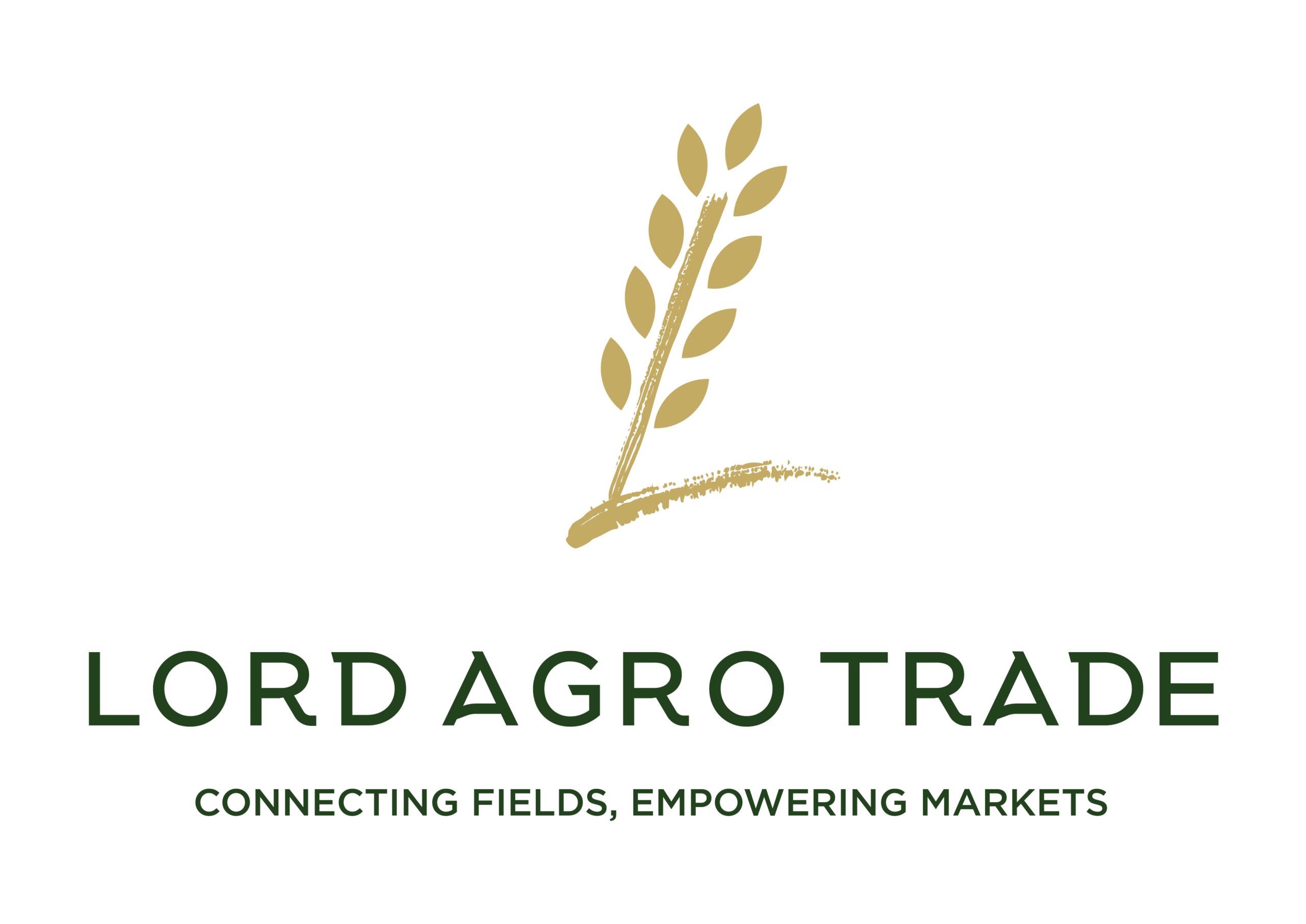Canada is one of the largest producers and exporters of lentils in the world, with the prairie provinces, particularly Saskatchewan, playing a key role in global supply. The Canadian lentil industry has seen consistent growth due to increasing global demand for plant-based proteins and pulses. With this growth, lentil suppliers must navigate a complex taxation system that can affect their profitability and long-term success.
Understanding the taxation rules that apply to lentil suppliers in Canada is crucial, whether they are small-scale farmers or large exporting companies. From income tax to sales tax, and property tax to capital gains, various forms of taxation influence the financial landscape for lentil suppliers. Proper knowledge of tax benefits and incentives available to agricultural businesses can help suppliers reduce their tax burden and maximize profitability.
This article will cover the types of taxes lentil suppliers in Canada are subject to, the tax benefits and incentives available, special considerations for exporters, and essential compliance guidelines.
Types of Taxes for Lentil Suppliers
- Income Tax
- Federal and Provincial Income Tax Rates
Lentil suppliers in Canada are subject to both federal and provincial income taxes. The federal government has a tiered tax system with rates depending on the amount of income earned, and each province applies its own additional rates. For example, in 2025, federal rates range from 15% to 33%, while provincial rates can vary from 5% to over 15%, depending on the province and income level.
- How Income from Lentil Sales is Taxed for Individuals vs. Corporations
Income from lentil sales is treated differently depending on the structure of the business. Individuals who operate small-scale farms are taxed on their personal income tax returns, while incorporated lentil suppliers are taxed at corporate rates, which are typically lower. Corporations may also benefit from the small business deduction, reducing their overall tax rate on the first portion of their active business income.
- Goods and Services Tax (GST) / Harmonized Sales Tax (HST)
- How GST/HST Applies to Agricultural Products, Specifically Lentils
In Canada, most basic agricultural products, including lentils, are zero-rated for GST/HST. This means that suppliers do not charge GST/HST on their sales of lentils, but they can still claim input tax credits (ITCs) for GST/HST paid on business expenses related to lentil production (e.g., machinery, supplies).
- Compliance Requirements for Suppliers
Suppliers must ensure they are registered for GST/HST if their annual revenues exceed the small supplier threshold (currently $30,000). Even if lentil sales are zero-rated, suppliers must file GST/HST returns and claim ITCs for eligible business expenses.
- Property Taxes
- How Farmland or Property Used for Lentil Production is Taxed
Property taxes are levied on farmland used for lentil production, with the amount calculated based on the value of the land. The tax rate varies by province and municipality. Agricultural land often benefits from lower tax rates compared to other types of property, but it’s essential for suppliers to understand how their local government assesses and taxes farmland.
- Provincial Variations in Property Tax Rates
Property tax rates can differ significantly between provinces. For example, Saskatchewan, a major lentil-growing province, offers favorable property tax rates for agricultural land, while other provinces may have higher rates or additional levies for land development.
- Capital Gains Tax
- Explanation of Capital Gains When Selling Agricultural Land or Business Assets
Lentil suppliers who sell agricultural land or business assets may be subject to capital gains tax. Capital gains are calculated as the difference between the sale price and the original purchase price of the asset. However, Canada offers favorable tax treatment for farmers, including the Lifetime Capital Gains Exemption (LCGE), which allows individuals to claim a significant portion of their capital gains tax-free when selling qualified farm property.
- Payroll Taxes
- For Suppliers Who Employ Workers in Their Operations
Lentil suppliers who employ workers must pay payroll taxes, which include contributions to the Canada Pension Plan (CPP) and Employment Insurance (EI). Employers are responsible for deducting these amounts from employee wages and making matching contributions. Payroll taxes must be calculated and remitted to the government regularly, and non-compliance can result in penalties.
Understanding these taxes and the various exemptions or incentives available can help lentil suppliers manage their financial obligations more effectively and optimize their tax strategy.
Tax Incentives and Benefits
1. Agriculture-specific Tax Credits
- Overview of Federal and Provincial Tax Credits Available to Lentil Producers
Lentil producers in Canada may qualify for several agriculture-specific tax credits aimed at supporting the agricultural sector. These tax credits can be both federal and provincial, providing valuable financial relief.
- Federal Investment Tax Credit (ITC): This credit allows lentil suppliers to claim a percentage of eligible investments made in equipment or property used for production.
- Provincial Credits: Many provinces, such as Saskatchewan, offer specific agriculture tax credits to support farmers, such as rebates on property taxes or credits for environmentally sustainable farming practices.
- Scientific Research and Experimental Development (SR&ED) Tax Credit: Lentil producers investing in innovative farming techniques or research may qualify for SR&ED tax credits, which allow them to deduct research and development costs.
2. Small Business Deductions
- How Small-scale Lentil Suppliers Can Benefit from Tax Deductions
Small-scale lentil suppliers, typically structured as corporations, can benefit from the Small Business Deduction (SBD). This deduction significantly reduces the corporate tax rate on the first $500,000 of active business income. By lowering the effective tax rate to around 9% (federal) for qualifying small businesses, the SBD provides crucial tax savings for smaller lentil producers who operate within this income threshold.
- Eligibility Criteria: Suppliers must meet specific criteria, such as being a Canadian-controlled private corporation (CCPC), and ensure that their income is derived from active farming operations.
3. Capital Cost Allowance (CCA)
- Depreciation of Equipment and Property Used in Lentil Farming
Lentil suppliers can claim a Capital Cost Allowance (CCA) to deduct the depreciation of equipment and property used in their farming operations. The CCA allows businesses to gradually write off the cost of machinery, vehicles, buildings, and other assets over several years, reducing taxable income.
- Classes of Assets: Equipment like tractors and harvesting machinery falls under specific CCA classes, each with an associated rate. For example, general farm equipment may fall under Class 8 (20% declining balance), while buildings used for farming may fall under Class 1 (4% declining balance).
- Accelerated Investment Incentive: The federal government offers accelerated CCA rates, allowing lentil suppliers to claim a larger portion of depreciation in the first year, which helps reduce taxable income more quickly and provides a cash flow advantage.
By taking advantage of these tax incentives and deductions, lentil suppliers can significantly lower their tax burden and reinvest in their operations, ultimately improving profitability and competitiveness in the agricultural sector.
Common Tax Challenges for Lentil Suppliers
1. Issues Related to Varying Provincial Tax Rules
One of the biggest challenges lentil suppliers face is navigating the different tax rules across Canadian provinces. While federal taxes are uniform across the country, each province has its own tax laws, including varying rates for property taxes, sales taxes (GST/HST), and provincial income taxes.
- Property Tax Variations: Property taxes on farmland differ greatly between provinces. For example, lentil suppliers in Saskatchewan may enjoy lower agricultural property tax rates compared to other provinces like British Columbia or Ontario, where land value assessments and tax rates can be significantly higher.
- GST/HST vs. Provincial Sales Taxes: While most provinces have harmonized GST and HST, others, like Alberta, do not have provincial sales taxes, creating complexities when doing business across provincial lines. Lentil suppliers must be diligent about understanding which products or services are taxed in each jurisdiction to ensure compliance.
- Tax Credits and Incentives: Some tax incentives available to lentil suppliers, such as agricultural credits or energy efficiency rebates, are province-specific. Suppliers operating in multiple provinces must ensure they understand which incentives apply in each region and meet the necessary requirements.
2. Audits and How to Avoid Tax Disputes
Tax audits can be stressful and costly for lentil suppliers, especially for those unfamiliar with the intricacies of tax reporting and compliance. Here are some common audit triggers and how to avoid disputes:
- Common Audit Triggers:
- Inconsistent Reporting: Large fluctuations in income or expenses from year to year may raise red flags with the Canada Revenue Agency (CRA), prompting an audit.
- Missing Documentation: Failing to keep adequate records of income, expenses, or tax credits can lead to disputes with tax authorities. Proper documentation is essential for justifying claims like input tax credits (ITCs) or deductions under the Capital Cost Allowance (CCA).
- Incorrect GST/HST Filings: Since lentils are zero-rated for GST/HST, mistakes in filing or claiming input tax credits could trigger an audit. Suppliers must ensure that GST/HST returns are accurate, even when no tax is collected on sales.
- Best Practices to Avoid Tax Disputes:
- Keep Detailed Records: Maintain organized and accurate records of all financial transactions, including receipts, contracts, and tax filings. This will help substantiate claims if the CRA questions any tax credits or deductions.
- Work with a Tax Professional: Hiring an accountant or tax advisor who specializes in agriculture can help ensure compliance with complex tax regulations, particularly for suppliers operating in multiple provinces or exporting internationally.
- File and Pay Taxes on Time: Consistently meeting tax filing deadlines and paying taxes owed promptly can reduce the risk of an audit or penalties.
- Stay Informed: Tax laws and regulations change frequently. Lentil suppliers should stay up to date with the latest rules or consult tax professionals to avoid non-compliance.
Conclusion
In summary, lentil suppliers in Canada face various tax obligations, including income tax, GST/HST, property taxes, capital gains tax, and payroll taxes. Additionally, there are valuable tax incentives and deductions, such as agriculture-specific tax credits, small business deductions, and the Capital Cost Allowance (CCA), which can help reduce the overall tax burden. However, suppliers must navigate the complexities of varying provincial tax rules and be mindful of common audit triggers, such as inconsistent reporting and incorrect filings.
Proper tax planning is crucial for lentil suppliers to optimize profitability, reinvest in their operations, and stay compliant with federal and provincial tax regulations. Effective tax management can also help suppliers take full advantage of available incentives, reduce financial risks, and enhance long-term sustainability in the competitive agricultural sector.
Given the intricacies of Canada’s tax system, lentil suppliers are encouraged to seek professional tax advice to ensure they are maximizing deductions, avoiding costly errors, and staying compliant with all tax regulations. A qualified tax professional can provide valuable guidance tailored to the unique needs of agricultural businesses.






Dear sir
We have red lentil client from Bângladesh
Please help to offer cnf chittagong port
Thanks
Ms An
litaexport@gmail.com
Required; Have LOI for 50,000 MT/M Red Lentils for Bangladesh. Can you supply. Long term contract.
Hello dear friend. Thank you for your message. Please send a message to the WhatsApp number to be connected with our sales and marketing department.
+1 (647) 497‑3727